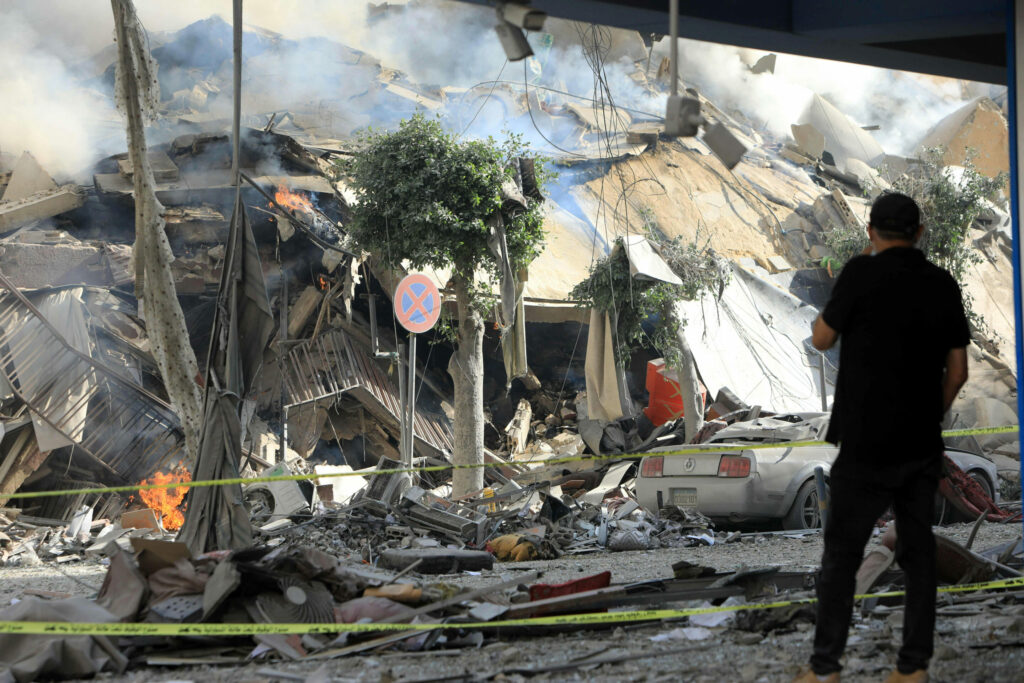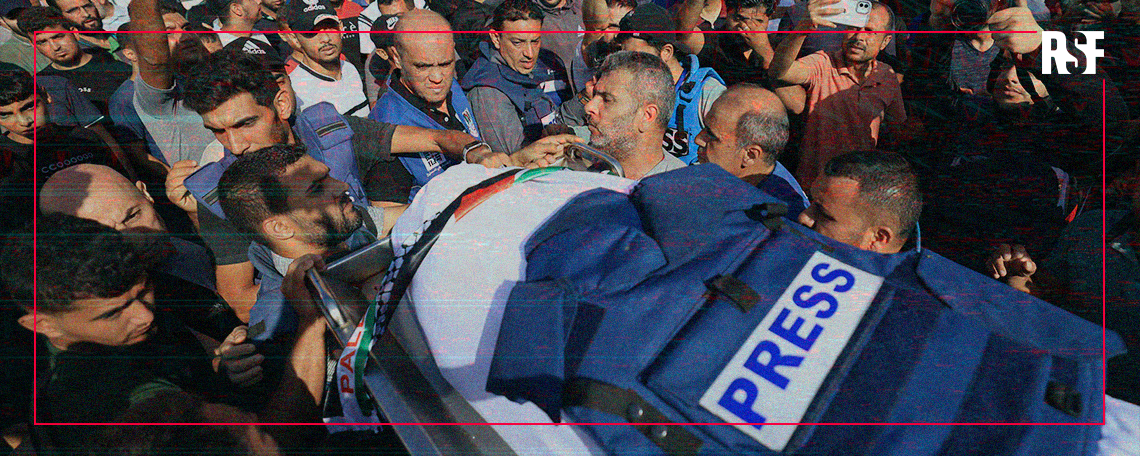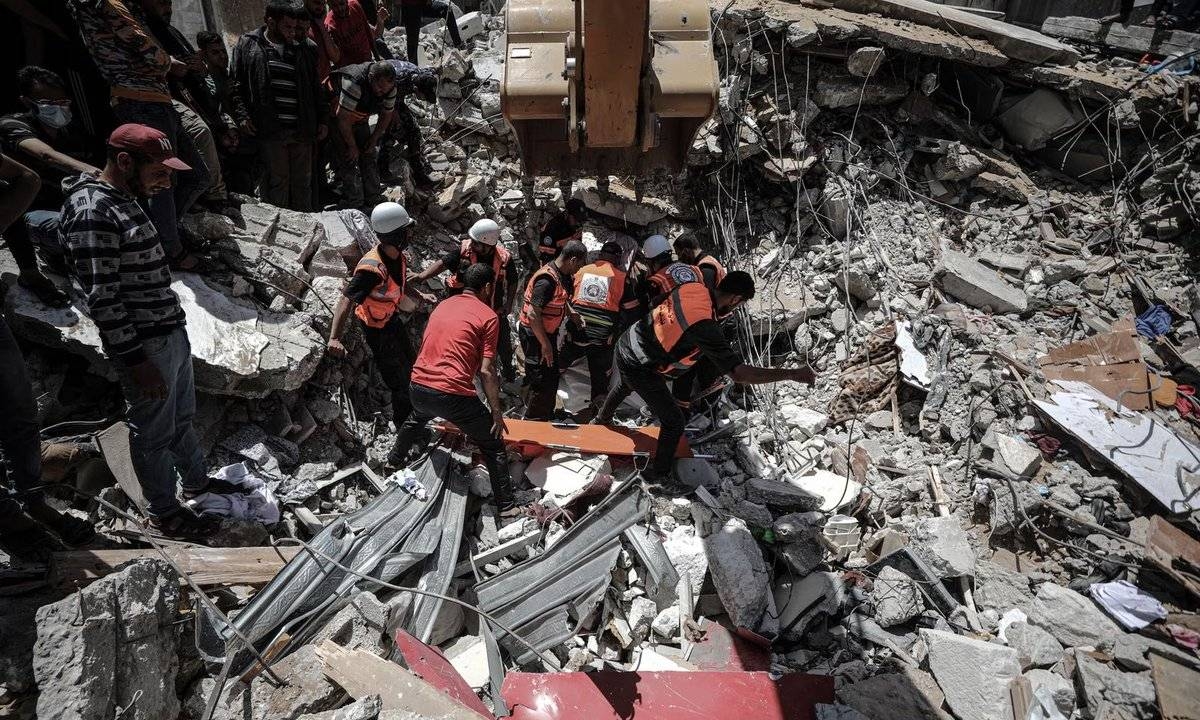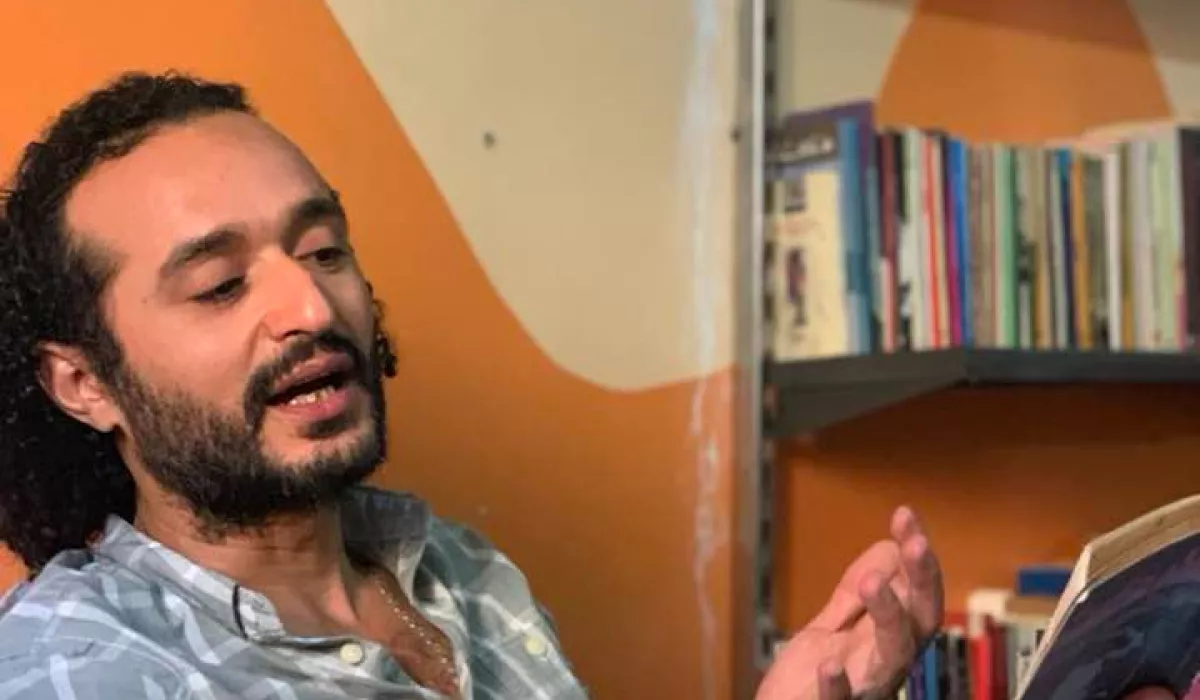
Two Belgian Journalists Wounded While Covering Beirut Airstrikes
October 3, 2024
Azerbaijan’s Press Freedom Crisis Deepens as 11 Journalists Remain Detained Ahead of COP29
October 4, 2024October 03, 2024 – Palestine –
One year since the outbreak of war on October 7, 2023, Reporters Without Borders (RSF) has exposed how Israeli forces have systematically dismantled Gaza’s media landscape, orchestrating a near-total blackout on independent journalism. The conflict has become the deadliest for journalists in recent history, and the deliberate targeting of media infrastructure has stripped both local and global audiences of critical access to information.
According to RSF, over 130 journalists have been killed in Gaza over the past year, with at least 32 of them deliberately targeted while on assignment. In total, 174 media workers have lost their lives—many while visibly working as press or inside marked media buildings. Surviving journalists have been forced to relocate repeatedly under bombardment, with those in exile barred from returning or continuing their work safely.
At the same time, Israel has restricted access to Gaza for nearly all foreign reporters, effectively sealing off independent observation of the war. Even within Israel and the occupied West Bank, the media climate has sharply deteriorated. Al Jazeera’s office in Ramallah was raided and shuttered, while journalists in Lebanon and the West Bank have been detained, harassed, or expelled. In May 2024, Israeli authorities raided the Associated Press’s live feed from southern Israel and confiscated equipment under emergency censorship laws targeting coverage deemed unfavorable to state interests.
The blackout has also extended to domestic coverage. In 2024 alone, Israel’s military censors fully banned over 1,600 articles and partially redacted 6,000 more. These actions not only suppress dissent within Israel but also contribute to the global information vacuum surrounding the war’s toll on Gaza’s civilian population.
RSF warns that this systematic obstruction of press freedom is not incidental—it is a strategic part of Israel’s military campaign. By silencing journalists, the Israeli government has prevented documentation of potential war crimes, humanitarian violations, and civilian suffering. The international community, RSF argues, must confront this media blackout as a direct attack on the public’s right to know, and take urgent steps to protect journalists and uphold the principle of free, independent reporting—even in times of war.
Reference –




